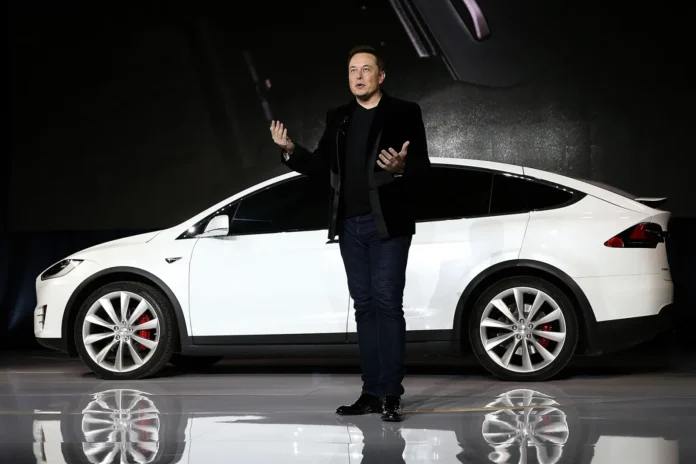Tesla shares fell nearly 5% on Wednesday after Chief Executive Elon Musk warned that reduced U.S. government support for electric vehicles could result in “a few rough quarters” before the company expects new revenue from self-driving software and services next year.
Speaking on the company’s quarterly earnings call, Musk said Tesla may face challenges in the coming months due to changes in policy under President Donald Trump. The U.S. government is cutting a $7,500 tax credit for EV buyers later this year.
Tesla reported a 12% drop in revenue for the April to June quarter, its second straight quarterly decline. Revenue fell to $22.5 billion from $25.5 billion a year earlier.
Adjusted profit per share was 40 cents, falling short of Wall Street expectations. The company also reported the steepest sales decline in more than a decade, but its automotive gross margin excluding regulatory credits stood at 14.96%, higher than expected, helped by lower costs per vehicle.
A 51% drop in revenue from automotive regulatory credits contributed to the weaker results. The credits are sold to other automakers who need to meet emissions rules.
Global deliveries fell 13.5% in the quarter, despite the launch of a refreshed Model Y. The company did not update its full-year delivery forecast, citing economic conditions and uncertainty around the rollout of a new low-cost model.
Tesla said it produced initial units of the new vehicle by the end of June, but Chief Financial Officer Vaibhav Taneja noted that production would ramp up more slowly than expected next quarter. Musk described the model as “just a Model Y,” without sharing details on pricing or total production.
Tesla also said it still plans to begin volume production of its robotaxi, called the Cybercab, and its Semi Truck in 2026. The company recently launched a small trial of robotaxi services using Model Y SUVs in Austin, Texas.
Musk said autonomous ride hailing could reach about half the U.S. population by the end of this year, and expects it to start having a financial impact late next year. Tesla is seeking regulatory approval in several U.S. states, and said it is close to receiving approval for supervised Full Self-Driving software in the Netherlands.
The company’s product lineup remains relatively unchanged, and it faces pressure from cheaper electric vehicles, particularly in China. Investors are also watching Musk’s involvement in his companies after he launched a new political party this month and promised to reduce his focus on government affairs.
Recent executive departures, including a key figure who managed sales and manufacturing in North America and Europe, have added to investor concerns.




